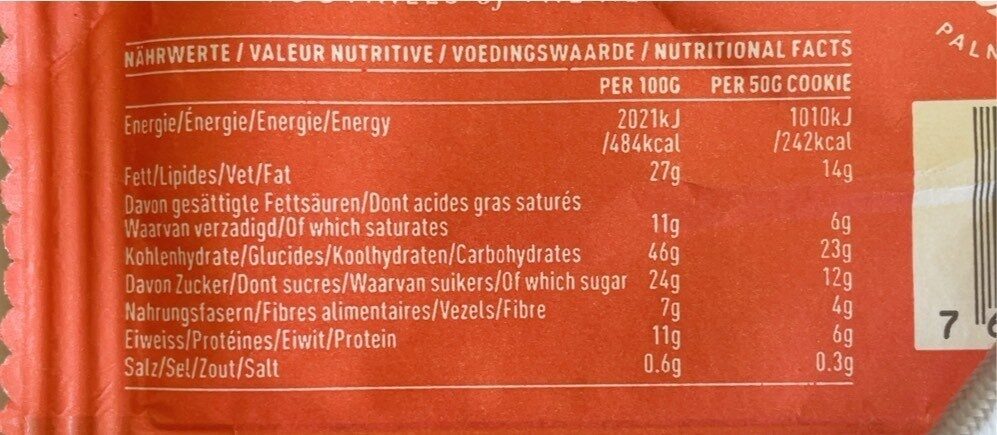Vegan chocolate peanut butter - Rythm 108 - 50 g
This product page is not complete. You can help to complete it by editing it and adding more data from the photos we have, or by taking more photos using the app for Android or iPhone/iPad. Thank you!
×
Barcode: 7640155340380 (EAN / EAN-13)
Quantity: 50 g
Brands: Rythm 108
Categories: Snacks, Desserts, Sweet snacks, Biscuits and cakes, Cakes, Filled cakes, Chocolate soft cake, Soft cake with nuts
Labels, certifications, awards: No gluten, Vegetarian, Vegan
Countries where sold: United Kingdom
Matching with your preferences
Environment
Carbon footprint
Packaging
Transportation
Report a problem
Data sources
Product added on by kiliweb
Last edit of product page on by kiliweb.
Product page also edited by chevalstar, ecoscore-impact-estimator, ianaitken, yuka.sY2b0xO6T85zoF3NwEKvlhJ8b-PEmWzBEQ3lnWTS1saDM4PQP9d2uI2nKKs, yuka.sY2b0xO6T85zoF3NwEKvlkZ1TdjQhCDGFhzSvlOVwfqLEbbtTe1r4NneGas, yuka.sY2b0xO6T85zoF3NwEKvlkZ2X9nimDf1PA7ksH2b_IeAKoTLXtZT64fwDqs, yuka.sY2b0xO6T85zoF3NwEKvlkpmTt3SoQj2OiTRwWi5z8eRMKD6Rsx4u9HAa6o, yuka.sY2b0xO6T85zoF3NwEKvlnNBcejevm_ZESLfsGC27PWVMaf3RO0j-q3xOKs, yuka.sY2b0xO6T85zoF3NwEKvlnxiQ-SHhBndFyPSmX-Uy8uiCrjYTftw-5n0Mas.









